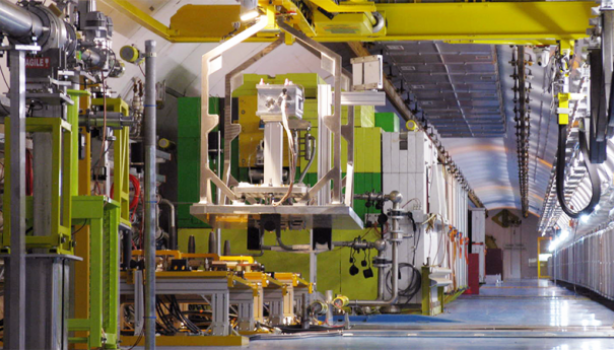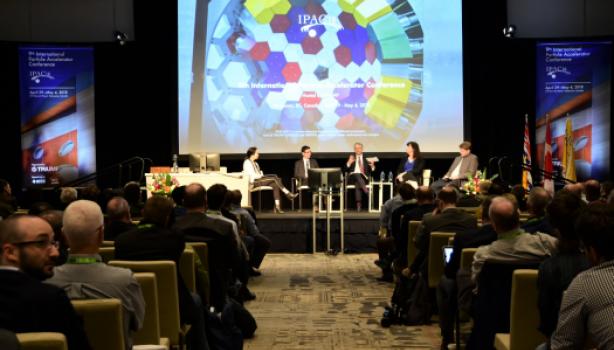The IPAC series of conferences offer the opportunity to member of the accelerator community to come together and consider the progress in their field as well as present the state of the art technologies emerging from ongoing R&D for future accelerators.
The 9th International Particle Accelerator Conference (IPAC'18) took place from 29 April to 4 May in Vancouver, Canada. The conference was hosted by TRIUMF and jointly sponsored by IEEE Nuclear & Plasma Society and the APS Division of Particle Beams. IPAC18 brought together more than 1200 participants from 31 countries and industry delegates reflecting the importance of strong partnerships to boost further the field of particle accelerators.
The Scientific Program included 63 invited talks and 62 contributed orals organized into opening and closing plenaries and three parallel sessions. Given the recent prominence of ring- and linac-based light sources, the program was adjusted to emphasize these machines. It is worth noticing also the geographical balance with 24% of the contributions coming from Asia, 41% from Europe, and 35% from America. This remarkable response ensures that IPAC’18 is truly international.
In addition to the Scientific Program, there was an Industry Panel discussion on successful models for technology transfer; an entertainment talk on the future of the kilogram which is destined this year to become defined by a combination of fundamental constants; the Women In Science and Engineering reception which focused on best practices for their retention and promotion; the Louis Costrel session at which IEEE and APS awards is 2018 prizes; and two special American Physical Society events: 125th Anniversary of Physical Review Celebration, and APS Referee and Author Tutorial.
The North American IPAC is committed to welcoming young researchers in our field, has heavily discounted fees for all students and worked with Asian and European counterparts to provide 107 student grants. A new feature of IPAC, introduced on a trial basis, is light peer review of a subset of papers; 190 papers were received and refereed. Nevertheless, the imperative to publish high quality papers in Physical Review Accelerators and Beams continues unabated. The JACoW proceedings continues unaffected.
The conference opened with welcome addresses from Kate Young, the Parliamentary Secretary for Science; and the Member of Parliament for London West (Ontario), the Hon. Bruce Ralston B.C.’s Minister of Jobs, Trade and Technology, and the conference chair Shane Koscielniak (TRIUMF).
The scientific programme was organized around eight main themes. The following selection of programme highlights are the highly personal choices of the conference chair and the programme chair, Tor Raubenheimer (SALC). Their selection is in no way intended to diminish the significance of the other talks.
The 10th IPAC will take place in Melbourne, Australia, on 19-24 May 2019.


